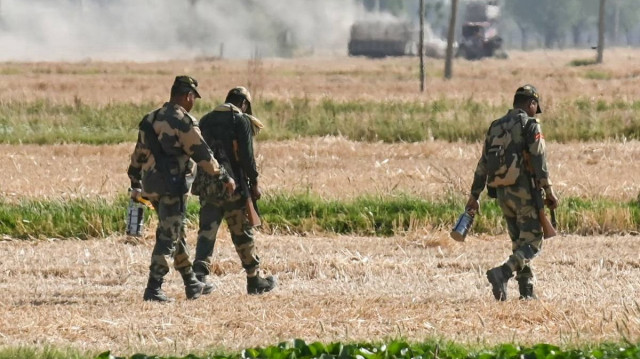
199 civilians, armed forces personnel also injured in latest clashes between 2 nuclear-armed neighbors, says Pakistani army
At least 51 people, including 40 civilians and 11 armed forces personnel, were killed and 199 others injured in the latest hostilities with India, Pakistan's military said on Tuesday.
The civilians killed included seven women and 15 children, while 121 others were injured, it added.
Among 11 armed forces personnel, seven were soldiers and four others were from the Pakistan Air Force, while 78 others were injured, said a statement by Inter-Services Public Relations (ISPR), the media wing of the Pakistani army.
"The nation remains resolute in the face of aggression. Let there be no ambiguity: any attempt to challenge Pakistan's sovereignty or territorial integrity, ever again, shall be met with a swift, full-spectrum, and decisive response," it said.
Tensions surged between the two nuclear neighbors after India launched Operation Sindoor during the intervening night of May 6 and 7, hitting what New Delhi said were "nine terror locations" in Pakistan and Pakistan-administered Kashmir.
Asserting that Operation Sindoor had achieved its aim, the Indian side said that five of its armed forces personnel lost their lives during the operation.
The rival militaries also engaged in heavy exchanges of fire, resulting in many deaths along the two sides of the Line of Control (LOC), a de facto border that divides the disputed Kashmir valley between the two neighbors.
On Saturday, Pakistan mounted its response under the “banner of Marka-e-Haq,” firing Al-Fatah missiles under Operation Bunyan-un-Marsoos, or "Iron Wall,” hitting 26 Indian military targets and air force bases in Jammu and Kashmir as well as in mainland India.
Pakistan said it shot down five Indian aircraft, but the Indian side had yet to officially respond to the statement.
The latest hostilities ended after the US mediated a ceasefire between the two South Asian neighbors, which remains in effect since the weekend.
India's Operation Sindoor was launched following the deaths of 26 people, mostly Indian tourists, on April 22 at the Pahalgam tourist site in Indian-administered Kashmir.
New Delhi blamed Islamabad, which denied any role but offered a neutral probe.
Soon after, the two sides took several reciprocal diplomatic measures, including the unilateral suspension of the Indus Waters Treaty, a decades-long water-sharing pact, by New Delhi.
Hello, the comments you share on our site are a valuable resource for other users. Please respect other users and different opinions. Do not use rude, offensive, derogatory, or discriminatory language.
The floor is all yours.








